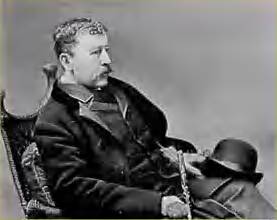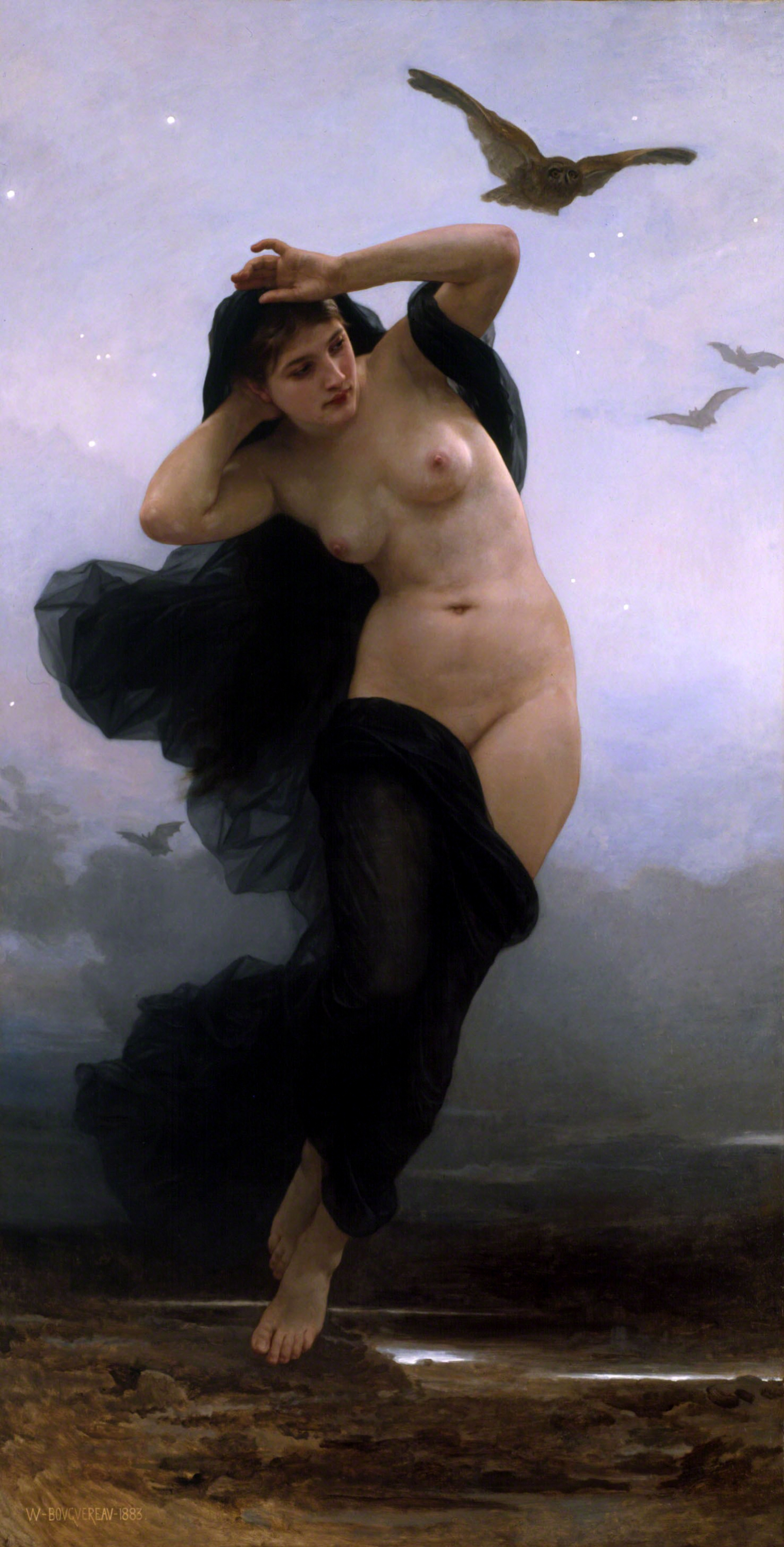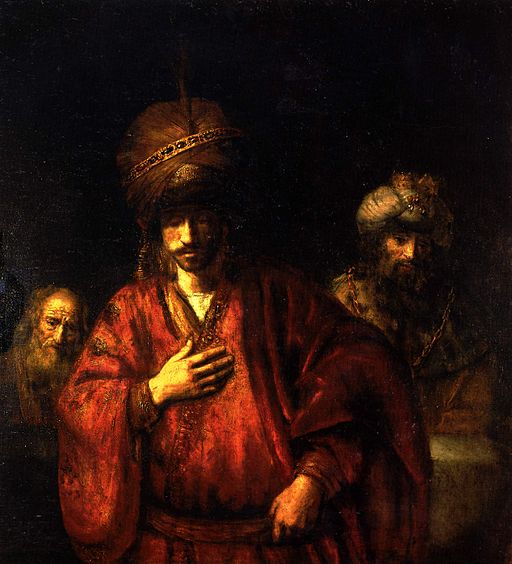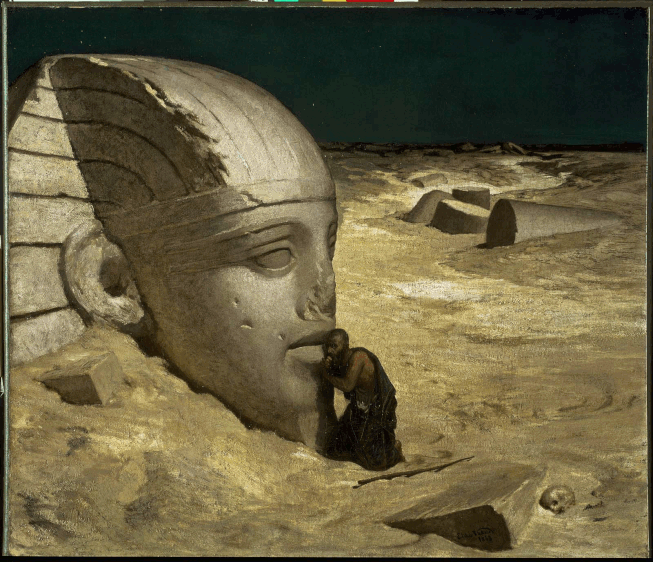 |
| Montana cowboys, c1910 |
These are from Mary Etta Stickney’s Brown of Lost River, a ranch romance set on the Wyoming frontier, and Marie
Manning’s Judith of the Plains,
about a mixed-race woman in a remote part of Wyoming. Once again, I struck out on a few. If anyone has a
definition for “Lothair colt,” “tank-and-sawmill school of drama,” “poppy hat,”
or “pepper rag,” leave a comment below.
 |
| Thomas Bailey Aldrich |
Aldrich, Thomas Bailey =
prominent American poet, novelist, and magazine editor
(1836-1907). “I feel as if we had died and our souls were meeting. You know
Aldrich’s exquisite lines.” Marie Manning, Judith of the Plains.
Barbauld, Anna Laetitia = prominent English
poet, essayist, and children’s author (1743-1825). “Mrs. Barbauld’s hymn, ‘Flee
as a Bird to the Mountain,’ are the words usually sung to the air.” Marie
Manning, Judith of the Plains.
Barmecide =
a member of a noble Persian
family who, according to a tale in The Arabian
Nights, gave a beggar a pretended
feast with empty
dishes; a meal that looks
good but doesn't come up to expectations. “Supper was a mockery to them,
a Barmecide feast.” Marie Manning, Judith of the Plains.
Boadicea =
queen of a tribe of Britons who led an
uprising against the occupying forces of the Roman Empire. “She rode as
Boadicea might have ridden to battle; there was not a yielding line in her
body.” Marie Manning, Judith of the Plains.
 |
| Bouguereau, La Nuit, 1883 |
Bouguereau, William-Adolphe = a French painter
(1825-1905) of realistic genre paintings using mythological themes and
emphasizing the female human body, popular on the walls of 19th-century saloons.
“The translucent flesh-tints, pearl-white flushing into pink—‘Bouguereau
realized at last,’ as Nannie Wetmore was in the habit of summing up her
cousin’s complexion—was as marvelous as ever.” Marie Manning, Judith of the
Plains.
blench = pallor. “The man in the doorway was tall and lean,
and the prison blench upon his face was an unpleasant contrast to the ruddy tan
of the faces about the table.” Marie Manning, Judith of the Plains.
chassez = in quadrille dancing, a movement of dancers sideways
in a straight line, to the right or left. “‘All chaw hay!’ he would blithely
cry, when a chassez was in order.” Mary Etta Stickney, Brown
of Lost River.
Class Day =
In American colleges and universities, a
day of the commencement season on which the senior class celebrates the
completion of its course by exercises conducted by the members, such as the
reading of the class histories and poem, the delivery of the class oration, the
planting of the class ivy, etc. (from Webster’s Revised Unabridged
Dictionary, 1913). “His first glimpse of her, on Class Day, in a
white gown and a hat…had been a vision that stirred in him heroic promptings.” Marie
Manning, Judith of the Plains.
curvet = a horse’s leaping or frisking motion. “The wherefore
of all this dashing horsemanship, this curveting, prancing galloping revival of
knightly tourney effects was apparent.” Marie Manning, Judith of the Plains.
 |
| Caricature, François Delsarte, 1861 |
Delsarte =
a style of musical performance, developed
by François Delsarte (1811-1871), emphasizing emotional expression and gesture.
“This harrowing ballad was repeated with accompanying Delsarte at intervals
during the afternoon.” Marie Manning, Judith of the Plains.
fix up = make oneself presentable, dress up, smarten up. “Mr.
Lovering had not come, as his wife placidly explained, ‘because he did so hate
to fix up.’” Mary Etta Stickney, Brown of Lost River.
gaiter = a garment similar to leggings, worn to cover or
protect the ankle and lower leg. “No slouching garb of exigence and comfort
this, but a pretty display of doeskin gaiter, varnished boot, and smart
riding-breeches.” Marie Manning, Judith of the Plains.
gosh all hemlock =
a mile expletive (God Almighty). “‘Gosh
all hemlock!’ he exclaimed, lost to any consideration of his words in the wild
excitement that possessed him.” Mary Etta Stickney, Brown of Lost River.
 |
| Rembrandt, Haman Disgraced |
Haman = a Persian adversary of the Jews in the Bible, hanged
for plotting to take up arms against them. “When she, recognizing them, masked
though they were, threatened them with the vengeance of the law, they hanged
her with her man high as Haman.” Marie Manning, Judith of the Plains.
Hayoka = the Sioux god of contrariety. “According to the
legends, he sat naked and fanned himself in a Dakota blizzard and huddled,
shivering, over a fire in the heat of summer. Likewise the Hayoka cried for joy
and laughed for sorrow.” Marie Manning, Judith of the Plains.
Heart and Hand, The = publication of
a matrimonial agency by the same name. “She lives back East, and him and her
took up their claims in each others affections through a matrimonial paper
known as The Heart and Hand.” Marie Manning, Judith of the
Plains.
Hebe = goddess of youth, cupbearer to the gods; a barmaid,
waitress. “A Hebe-like creature, blond and pink-cheeked, in a blue-checked
apron besmeared with grease and flour, came sulkily into her mother’s
presence.” Marie Manning, Judith of the Plains.
hen = to act cautiously. “She used to be coming out here
’most every day, just henning around, offering to make the dessert or a salad
or something.” Mary Etta Stickney, Brown of Lost River.
lacking = a fool, a dunce. “It be a hard blow to me to know
that my sons are lackings.” Marie Manning, Judith of the Plains.
lam = to beat. “Ef he’d been my child, I’d a lammed it
out’n him before he’d a seen two.” Marie Manning, Judith of the Plains.
logy = slow, lethargic. “Is it that we’re getting on, a
little long in the tooth, logy in our movements?” Marie Manning, Judith of
the Plains.
McKinley bill =
a protective tariff measure passed in
Congress in 1890. “If I’m any good at reading brands, she is as self-protective
as the McKinley bill.” Marie Manning, Judith of the Plains.
mess-box =
a storage box for provisions on a chuck
wagon. “She found that the tin breakfast service had been washed and returned
to the mess-box, the beds had been neatly folded and piled in one of the wagons.”
Marie Manning, Judith of the Plains.
 |
| The Roc's Egg, R. Gifford (1840-1905) |
roc’s egg =
the egg of a giant mythical bird. “‘I am
sure they have not’ said the girl, with a sinking heart, the name to her
suggesting nothing more likely than a roc’s egg.” Mary Etta Stickney, Brown
of Lost River.
sangaree =
a cold drink of diluted and spiced wine.
“Mary could never remember when the need of money to pay the mortgage had not
invaded the gentle routine of their home-life, robbing the sangaree of its
delicate flavor in the long, sleepy summer afternoons.” Marie Manning, Judith
of the Plains.
sharp = an expert. “He was talking of it once to a man who
was a sharp on things like mesmerism.” Marie Manning, Judith of the Plains.
stem-winder =
excellent, first-rate. “A stem-winder, as
you might say; always right there, up an’ comin’ when you wanted him, the best
bronco breaker in Wyoming.” Mary Etta Stickney, Brown of Lost River.
panorama = unrolling
or unfolding stage scenery, creating the illusion of movement across a
landscape. “The scrap of view that came within a closer range of vision spun
past the car windows like a bit of stage mechanism, a gigantic panorama
rotating to simulate a race at breakneck speed.” Marie Manning, Judith of
the Plains.
paretic = partially or completely paralyzed. “I’ve always
tried to lead a good life, and here I am a paretic before I’ve come of age.” Marie
Manning, Judith of the Plains.
 |
| Psyche knot |
Psyche knot =
a way of dressing the hair at the back of
the head in imitation of the ancient Greeks; also, “Grecian knot.” “She done
her hair like a tied-up horse-tail—my wife called it a Sikey knot—and it stood
out a foot from her head.” Marie Manning, Judith of the Plains.
rally = ridicule, make fun of. “Warren Rodney made the
acquaintance of Sally Tumlin, who rallied him on being a ‘squaw man.’” Marie
Manning, Judith of the Plains.
roof tree =
the primary beam of a roof, the ridgepole;
the roof. “She wore a pink sunbonnet, though the hour was one past sundown, and
though she sat beneath her own roof-tree.” Marie Manning, Judith of the
Plains.
round = a rung of a chair or ladder. “Mrs. Rodney now put a
foot on the round of an adjoining chair and shoved it towards Mary Carmichael.”
Marie Manning, Judith of the Plains.
snuff brush =
a stick or brush used in rubbing snuff on teeth or gums.
“Mrs. Rodney, after freshening up the snuff-brush from a small, tin box in her
lap, put spurs to her rocking-chair, so to speak, and started off at a brisk
canter.” Marie Manning, Judith of the Plains.
truckle = to gain favor by cringing or flattering. “Everyone
truckled to her shamefully, receiving her lightest remarks as if they were to
be inscribed on tablets of bronze.” Marie Manning, Judith of the Plains.
 |
| Painting by Elihu Vedder |
Vedder, Elihu =
an American symbolist painter,
illustrator, and poet (1836-1923), best known for his illustrations of The
Rubaiyat of Omar Khayyam. “The whole dread picture brought before
her one of Vedder’s pictures that hung in the shabby old library at home.” Marie
Manning, Judith of the Plains. “The Questioner of the Sphynx” (right), 1863.
wool-clip =
the total quantity of wool shorn in any
place or season. “The town—it would be unkind to mention its name—had made
merry the night before at the comprehensive invitation of a sheepman who had
just disposed of his wool-clip.” Marie Manning, Judith of the Plains.
Image credits:
Psyche knot, Girls Own Paper and Woman’s Magazine, 1911
"The Roc's Egg," www.thecityreview.com
All others, Wikimedia Commons
Coming up: A. B. Ward, The Sage Brush Parson (1905)
Your Old West Glossary is always a delight, Ron. I can't help with the obscure ones this time, but was delighted with "Class Day"--observed in the small reservation town where I grew up--and "gaiter"--still used by cross-country skiers. Have always loved the westerner's use of "sharp"--as in "card sharp","gospel sharp" (for a preacher). Thanks for the posting!
ReplyDeleteI would have guessed "henning around" meant acting like a woman.
ReplyDeleteI believe that is supposed to be the connection.
DeleteBlench, curvet, gaiter, lam, logey. I've heard these. think I've used one or two of them in stories.
ReplyDeleteLove these, Ron. And Stan -have heard card sharp, but not gospel sharp. My favorite old expression for a preacher? "Sky pilot."
ReplyDeleteYou should publish a western dictionary (or at least put them all together onto a webpage). These are a delight to explore.
ReplyDeleteI plan to put them together into a book before too long. Thanks for the encouragement.
Delete"Tank and Sawmill Drama" referred to the type of play in which the heroine always winds up lashed to a log and about to be run through a buzz-saw. This type of melodrama played well in tank-towns which I assume is where the first half of the phrase comes from.
ReplyDeleteThanks. Sounds right.
DeleteOops, posted too soon. Lothair was the name of a racehorse but more than that I can't tell you.
ReplyDelete